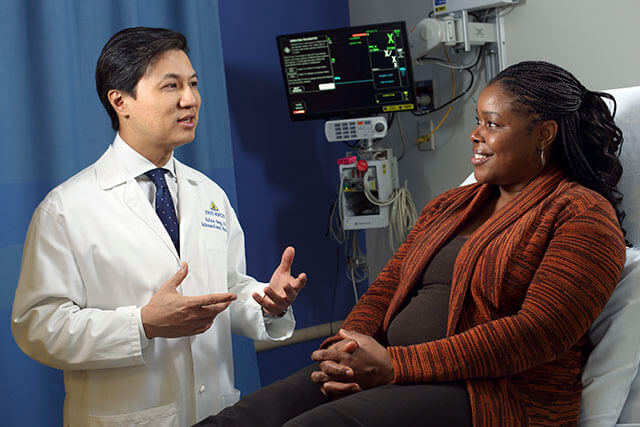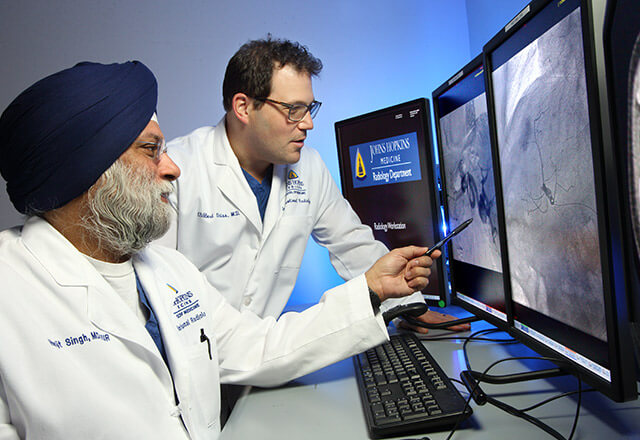Robert Liddell, MBBCH

- Director, Interventional Radiology
- Associate Professor of Radiology and Radiological Science
By harnessing the power of advanced imaging (ultrasound, X-rays, CT scans, MRI scans and other innovative methods), our board certified interventional radiologists can diagnose and treat complex conditions—even cardiovascular disease and cancer—less invasively and with unprecedented precision.
Often times, IR provides numerous benefits to patients compared to open surgical techniques including shorter recovery time, less pain and reduced risk of complications.
Contact us to connect with our team of experts
See what conditions we treat through minimally invasive procedures.
Learn about our interventional radiology specialists
Apply to the Interventional Radiology (IR/DR) Residency program.
Prostatic artery embolization (PAE) is a minimally invasive treatment that helps improve lower urinary tract symptoms caused by a Benign Prostatic Hyperplasia.

Fibroid tumors are noncancerous (benign) growths that develop in the muscular wall of the uterus. Fibroid embolization, also called uterine artery embolization, is done without surgery. It requires only a tiny nick in the skin about the size of a pencil tip

A percutaneous cholangioscopy procedure treats gallstones in the gallbladder, known as cholelithiasis, for patients who are not operative candidates for gallbladder removal.









Dr. Kelvin Hong provides an overview of the Division of Interventional Radiology within the Department of Radiology and Radiological Science. Physicians within the division perform image-guided diagnostic and therapeutic procedures for cardiovascular conditions as well as a broad range of services for patients with cancer, pain, diabetes, liver, kidney, and other conditions.